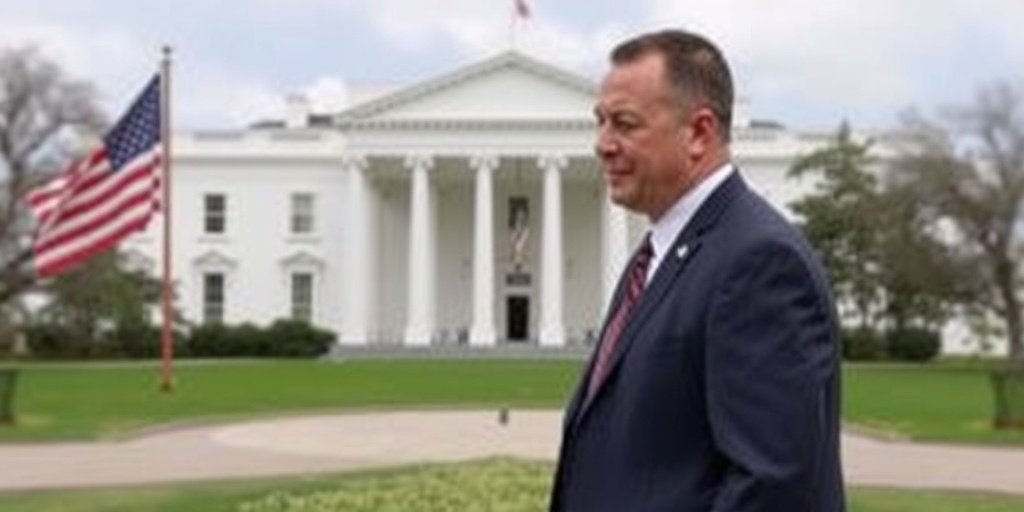Now Reading: Judge Seeks Updates on Deported Man Amid White House Tensions
-
01
Judge Seeks Updates on Deported Man Amid White House Tensions
Judge Seeks Updates on Deported Man Amid White House Tensions

A federal judge in Maryland has taken decisive action to address ongoing disputes with the Trump administration regarding the unlawful deportation of a man to El Salvador. Judge Paula Xinis has mandated daily updates from the administration on its attempts to bring Kilmar Armando Abrego Garcia back to the United States. This follows a particularly contentious series of exchanges in court, where the Justice Department initially defied her requests for information on the steps being taken for Mr. Abrego Garcia’s return.
The situation escalated throughout a day filled with tensions between the judiciary and the executive branch. Judge Xinis’ order arose as a direct consequence of a recent Supreme Court ruling, which instructed the Trump administration to take immediate action to free Mr. Abrego Garcia, a 29-year-old Salvadoran migrant currently incarcerated in El Salvador. The deportation occurred despite a previous federal court order that had explicitly prohibited such action.
During a Federal District Court session, Judge Xinis pressed Drew Ensign, an attorney for the Justice Department, with numerous inquiries about Mr. Abrego Garcia’s situation, including his current location. However, Ensign’s responses were largely vague, asserting that officials within the Trump administration had yet to provide him with the necessary information to fulfill her requests. When Judge Xinis inquired about what steps had been taken to facilitate Mr. Abrego Garcia’s release, Ensign admitted that the defendants were “not yet prepared to share that information.”
In response to this lack of information, Judge Xinis expressed her frustration, remarking, “That means they’ve done nothing.” The judge’s dissatisfaction only deepened when Ensign suggested that the Department of Justice would respond to her request in writing by the following Tuesday. Judge Xinis firmly rejected this proposal, emphasizing, “We’re not going to slow-walk this,” reiterating that the Supreme Court had already clearly resolved the matter.
Earlier in the day, the Justice Department had submitted an assertive two-page filing, claiming that the court had not allowed sufficient time for its lawyers to prepare a plan for Mr. Abrego Garcia’s case after the Supreme Court issued its ruling. In their filing, the lawyers contended that the government’s desire to postpone the deadline resulted from the limited time available to review the Supreme Court’s order.
Judge Xinis responded to the Justice Department’s request by granting them until 11:30 a.m. to complete the written declaration of their plans but kept the scheduled hearing for 1 p.m. unaffected. She made it abundantly clear that the administration’s decision to send Mr. Abrego Garcia back to El Salvador was “wholly illegal from the moment it happened.” Her stern remarks also highlighted her belief that the Justice Department’s request for additional time “blinks at reality.”
While the Supreme Court’s ruling initially appeared to be a legal win for Mr. Abrego Garcia and his family, it included a stipulation that could potentially be used by the Trump administration to argue against their obligation to facilitate his return. The justices refrained from clarifying what they meant by “facilitate and effectuate” the return, ultimately delegating that responsibility to Judge Xinis.
The justices also advised her to ensure that any clarifications she provided would take into account the deference historically extended to the executive branch concerning foreign affairs. In their filing, lawyers representing the Justice Department requested that Judge Xinis elucidate her expectations before they could outline the administration’s proposed actions regarding Mr. Abrego Garcia’s repatriation.
They argued that it would not be practical for them to disclose possible actions prior to review and vetting, insisting that foreign affairs require flexibility that judicial timelines do not always accommodate. This ongoing legal tussle exemplifies the challenging dynamics between challenges to executive authority and the judiciary, particularly in cases dealing with immigration and foreign policy.
As this case unfolds, the administration’s compliance with Judge Xinis’ orders and the potential pathways for Mr. Abrego Garcia’s return remain closely monitored, highlighting the complexities involved in enforcing legal rights in the face of executive policies. The outcomes of these proceedings could have significant implications not only for Mr. Abrego Garcia but for broader immigration policies under the Trump administration.
Stay Informed With the Latest & Most Important News
Previous Post
Next Post
-
 01New technology breakthrough has everyone talking right now
01New technology breakthrough has everyone talking right now -
 02Unbelievable life hack everyone needs to try today
02Unbelievable life hack everyone needs to try today -
 03Fascinating discovery found buried deep beneath the ocean
03Fascinating discovery found buried deep beneath the ocean -
 04Man invents genius device that solves everyday problems
04Man invents genius device that solves everyday problems -
 05Shocking discovery that changes what we know forever
05Shocking discovery that changes what we know forever -
 06Internet goes wild over celebrity’s unexpected fashion choice
06Internet goes wild over celebrity’s unexpected fashion choice -
 07Rare animal sighting stuns scientists and wildlife lovers
07Rare animal sighting stuns scientists and wildlife lovers





















